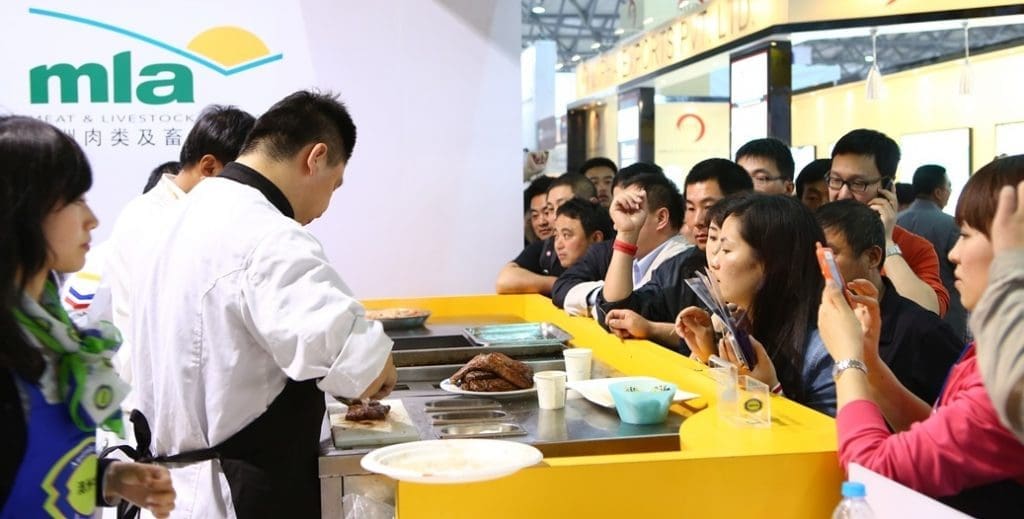CONTINENTAL neighbours Canada and Mexico can impose US$1 billion in annual tariffs on US goods as a result of a challenge over the US’s controversial Mandatory Country of Origin Labelling law, the World Trade Organisation has ordered.
The WTO released its decision on the tariff levels yesterday, and expectations are the penalties could begin before Christmas. While the tariff levels are less than one third of what the two neighbouring countries originally asked for, they will still cause considerable disruption to exports of US meat and other products, analysts say.
 Meat & Livestock Australia trade and market access manager Andrew McCallum says from preliminary observations, he expects little impact on Australian exports, “but we will need to see what happens once the retaliatory tariffs are implemented and on what lines tariffs are applied.”
Meat & Livestock Australia trade and market access manager Andrew McCallum says from preliminary observations, he expects little impact on Australian exports, “but we will need to see what happens once the retaliatory tariffs are implemented and on what lines tariffs are applied.”
Canada has already indicated it will target agricultural products such as beef and pork (duties of up to 100pc), apples and Californian wine. Mexico has not published a list of targeted US products.
Major US industry trade groups have renewed their calls for the US Senate to repeal the parts of the Mandatory Country of Origin Labelling (MCOOL) law relating to meat.
The US House of Representatives repealed the MCOOL laws earlier this year but the Senate is yet to act. This may now force the Senate to consider the matter analysts say.
Futures market falls
In developments since the WTO announcement, concerns about potential meat trade retaliation by Canada and Mexico have dragged down the US live cattle futures market. Live cattle futures spot December closed 2.65c lower at US121.62c/lb, and February down 2.07c to 127.15c/lb.
Writing in his Daily Livestock Report, Len Steiner suggests the drop in cattle futures was not driven solely by the WTO decision, but was simply a part of a slew of other negative news that had pressured US red meat prices. “Still, the outlook for US meat trade in the next three to six months is critical, and there is plenty of uncertainty as to how the potential for tariffs will distort trade flows with two of our largest trading partners,” he said.
There is some expectation that the US Senate might vote in the next two weeks to either repeal MCOOL or modify it enough so it satisfies Canadian and Mexican objections.
“In the meantime, meat market participants may opt to sit on the sidelines given all the uncertainty surrounding this issue,” Mr Steiner said.
Even though there are no tariffs yet on US beef and pork imports into Canada, trade in those items is already being impeded or stopped, trade reports suggest. US packers are requesting that Canadian grocers and distributors commit to paying the duty in anticipation of the tariffs, but no one in Canada is going to agree to pay the duty, a trade source said. As a result, no US beef sales are being made into Canada for the December January period.
Canada has iterated its demands for the repeal of the COOL, arguing the policy harms livestock producers in Canada, Mexico and the US.
“Since 2011, the WTO has repeatedly ruled that COOL discriminates against Canadian and Mexican cattle and violates the trade obligations of the US,” Canada’s agriculture minister Lawrence MacAulay said.
“The government of Canada has made every effort to convince the US to comply with its international trade obligations. While the US House of Representatives repealed COOL for beef and pork in June, the government of Canada has urged the US Senate to do the same, but it has not yet done so.”
That may be about to change, however, with the chair of the US Senate agriculture committee, Sen Pat Roberts vowing he would continue to search for legislative opportunities to repeal MCOOL.
“How much longer are we going to keep pretending retaliation isn’t happening?” Sen Roberts said in a statement. “Does it happen when a US cattle rancher is forced out of business? We must prevent retaliation, and we must do it now before these sanctions take effect.”
Support, opposition
In contrast, US advocates of MCOOL are urging lawmakers to leave the labelling law intact.
Chief executive of producer lobby group R-CALF USA, Bill Bullard, said Congress should take no action to repeal COOL or weaken it by converting it to a voluntary program.
Instead, Congress should direct the US trade ambassador to negotiate a diplomatic solution to Canada’s and Mexico’s complaints by deploying the US’s ‘substantial negotiating skills’, Mr Bullard said.
Meat industry stakeholders countered R-CALF’s views, saying that US meat and poultry producers had already suffered financial losses because of MCOOL and retaliation would only make it worse.
China FTA enactment set for December 20
In other important export trade news this week, Australia’s Free Trade Agreement with China will be enacted on December 20, allowing the optimum level of tariff reduction on beef to occur.
Having passed both houses of parliament in Australia, both Governments passed letters yesterday setting December 20 for the ChAFTA agreement to come into force.
The process means that on 1 January, the year-two tariff reductions will occur. On beef, that means import tariffs will have fallen by 3.6pc. The current duty of 15pc on sheepmeat will be reduced to zero in nine stages over eight years.
It will still leave Australia six years behind New Zealand’s tariff reduction schedule. NZ will be on zero tariffs for sheepmeat and beef from 2016.
Both Uruguay and Brazil have been increasing their beef exports to China this year, so the reduced tariffs under ChAFTA will be an important advantage, trade sources say.
“The quick succession of initial tariff cuts will help improve the competitiveness of Australian product heading to China,” MLA’s trade and market access manager Andrew McCallum told Beef Central.
“That is particularly important, as sheepmeat and beef products from New Zealand will be duty free from 1 January 2016, and other beef suppliers to China have recently secured improved access,” he said.
China remains one of Australia’s largest export beef customers – sitting behind the US, Japan, and South Korea, with volumes totalling 135,000tonnes year-to-date – an 18pc increase year-on-year.
Grey channel trade reportedly tightened in China midway through this year, and Australian exports have seen continued growth in recent months.
Increased beef consignments into certain markets has provided greater awareness of Australian product around the world, however the growth of other beef exporting countries, such as Brazil, will also bring increased competition in 2016.
Consuming over 80pc of their own production, and having a number of market access constraints, Brazil’s beef exports have been greatly inhibited in recent years. However, with an expanding cattle herd (200 million head) and now 11 processing plants approved for export to China, Brazilian beef exports to China are forecast to reach close to 200,000t in 2016.

